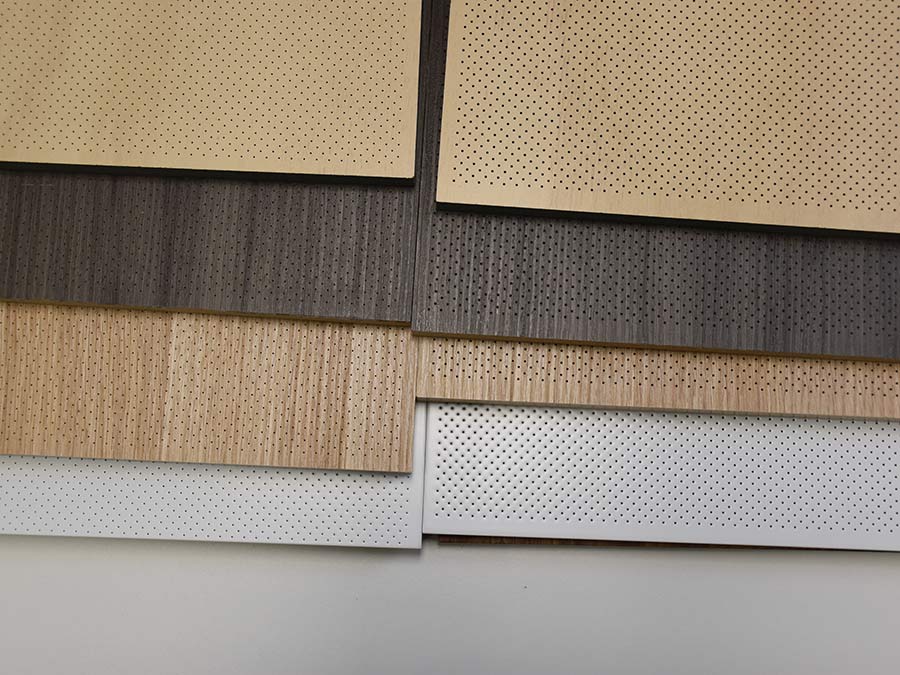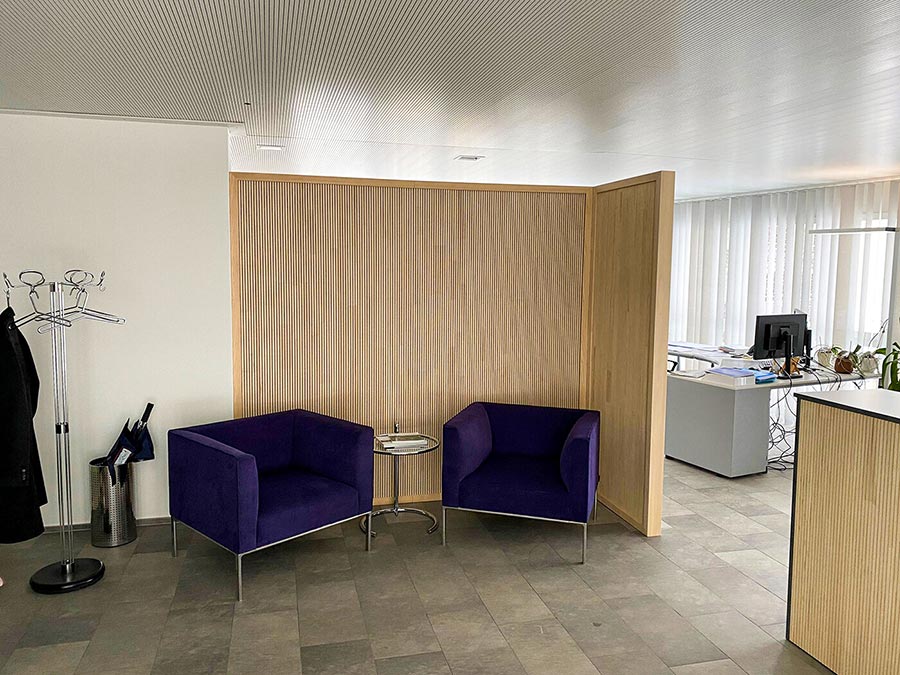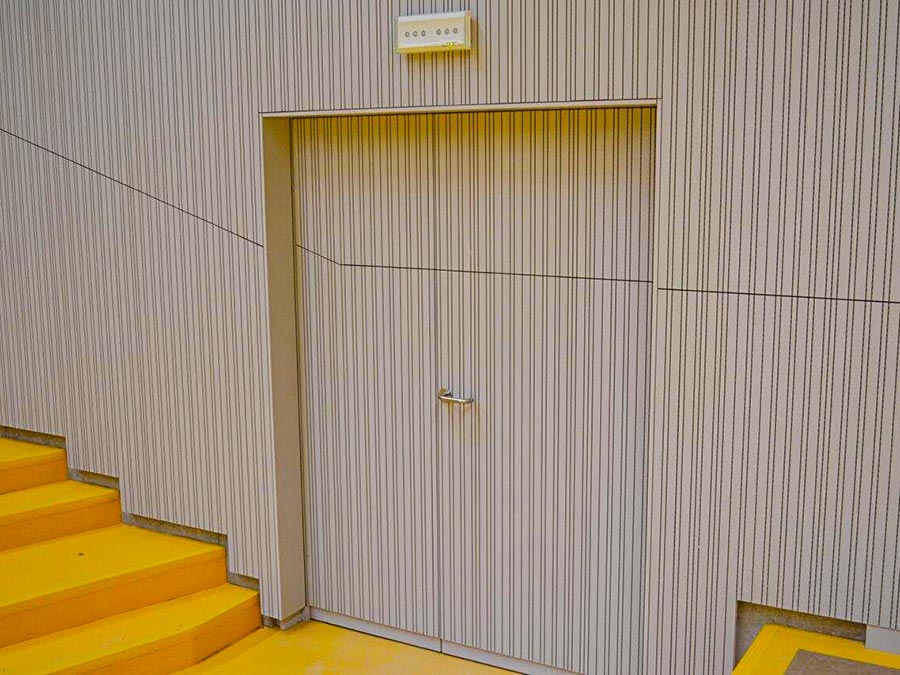Acoustics are a fundamental aspect of a sustainable built environment. Ensuring that occupants can communicate effectively and be comfortable is essential for creating enduring interiors where people can thrive. But while it’s an essential consideration, it’s certainly not the only one. Traditional acoustic panels can contain harmful chemicals, require significant energy to produce or use materials that aren’t responsibly sourced – or have a detrimental impact on the environment. As a result, when considering acoustic requirements of a project, it’s paramount to specify solutions that combine exceptional functionality with environmental responsibility. SUPAMicro, a cutting-edge acoustic panel solution from SUPAWood, does exactly that.
With over two decades of empowering architects and designers to create beautiful, functional and enduring spaces that leave a positive mark on the environment, SUPAWood is undoubtedly one of Australia’s leading manufacturers of architectural lining solutions. And this latest release is yet another expression of their steadfast efforts to provide industry professionals with highly-considered premium products.
Combining responsibly sourced timber with an ingenious micro-perforation technology, SUPAMicro delivers superior acoustic performance without compromising on sustainability. In fact, this innovative product, launched in October 2023, addresses sustainability on multiple levels – starting with the very material it’s made with.

Timber is considered to be the most renewable material currently available, and SUPAWood takes commitment to sustainable forestry exceptionally seriously. SUPAMicro panels are manufactured exclusively from PEFC and FSC®-certified timber, sourced from local and sustainably managed forests, and SUPAWood holds the Chain of Custody (COC) certification for both Forest Stewardship Council (FSC®) and Programme for the Endorsement of Forest Certification (PEFC) schemes. These initiatives help ensure an independently audited path from forest to end-user, and the certification means that every link in the supply chain is meticulously tracked and verified, ensuring that the timber used in SUPAMicro panels meets the highest environmental standards. In addition, the MDF that the panels are made with is largely composed of wood fibres, allowing for utilisation of wood shavings and other wood remnants that would otherwise end up in landfill – this process reduces waste and ensures a more efficient utilisation of harvested trees. Consequently, it alleviates pressure on forests and helps promote sustainable construction practices in the long run.
Beyond sourcing sustainable and mindful utilisation of materials, SUPAWood's commitment to the environment extends to their local manufacturing processes. Proudly Australian-made, the panels are manufactured locally, reflecting SUPAWood’s commitment to supporting the Australian economy and their local communities while reducing the environmental impact of transportation. These manufacturing processes are optimised for energy efficiency, further reducing the environmental footprint of SUPAMicro production.
Adding to these sustainability features, SUPAMicro panels emit minimal volatile organic compounds (VOCs). VOCs are known to cause a range of health issues, so by minimising VOC emissions, SUPAMicro contributes to better indoor air quality and occupant well-being.
This outstanding sustainability profile is matched by the panels' superior acoustic performance. The micro-perforation technology effectively absorbs sound and reduces noise levels, creating more comfortable and productive environments. This makes SUPAMicro ideal for a variety of applications, including offices, schools, hospitals, and residential buildings. The panels are available in a variety of NRC (Noise Reduction Coefficient) ratings to suit different acoustic requirements, enabling specifiers to select an appropriate solution for their project requirements.
Perhaps what truly sets SUPAMicro panels apart is their ability to provide an acoustic performance and environmental profile, without compromising on the quality and aesthetic appeal of the finish. This is achieved through the use of an innovative micro-perforated surface, which allows sound to pass through while maintaining a cohesive visual language of the panel. This, in turn, means that the acoustic solution can be seamlessly and discretely integrated into any interior design scheme, while providing outstanding acoustic performance.

And when it comes to finishes, SUPAWood offers a comprehensive selection designed to showcase the natural appeal of woodgrain. Beautiful and timeless, timber finishes also allow designers to elevate the environmental potential of their projects through the incorporation of biophilic design elements. The benefits of woodgrain are widely recognised, and have been shown to have a positive impact on human health and well-being. Integrating timber as part of an interior can have a calming and relaxing effect on the occupants, as well as help reduce stress levels, improve mood, cognitive function, and creativity – qualities bound to help create more comfortable, healthier, and more productive interiors where occupants can thrive.
Depending on project requirements, designers can choose from SUPAVENEER, SUPAFINISH and SUPATEXTURE. The SUPAVENEER finishes boast natural timber veneers selected and finished to deliver wood acoustic panels with finesse, while SUPAFINISH provides a sleek and consistent finish on all acoustic ceiling and wall panels. SUPATEXTURE, on the other hand, is a tactile and highly durable film engineered for ultimate longevity. In fact, it comes with a unique 30-year product warranty, highlighting SUPAWood’s confidence in this hardy finish.
The panels are also available in a range of custom colours, allowing for even greater design flexibility. Plus, SUPAMicro’s high-quality design and resistance to chipping mean that the panels will maintain neat edging, stunning finish, and structural integrity for years to come, ensuring a long-lasting, seamless appearance.

And what happens to the panels at the end of their life? Due to their modular design, most panels can be easily removed and reused in different locations or on other projects, extending their lifespan and reducing waste. For panels that cannot be reused, their Red List Approved status ensures they can be safely disposed of in landfills. There, MDF’s non-biodegradable nature becomes advantageous because it means that it effectively sequesters carbon for extended periods, preventing its release into the atmosphere – and contributing to the reduction of excess carbon levels.
With flawless integration, outstanding functionality and exceptional sustainability profile, SUPAWood’s innovative acoustic panels stand out as a superior solution for any environmentally-minded industry professional who isn’t looking to compromise. By empowering designers to create unique and enduring interiors that seamlessly fuse acoustic performance with environmental responsibility, and showcase the natural beauty of timber, the innovative SUPAMicro panels help contribute to a more sustainable built environment – and a brighter future for the Australian forests.

